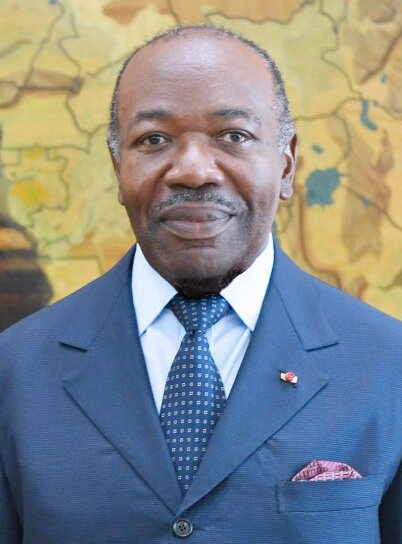WRAPUP 10-Gabon officers declare military coup, President Ali Bongo detained
The officers who said they represented the armed forces declared on television that the election results were cancelled, borders were closed and state institutions were dissolved, after a tense vote without international observers that was set to extend the Bongo family's more than half century in power. Hundreds of people celebrated the military's intervention, while France, Gabon's former colonial ruler which has troops stationed in the African nation, condemned the coup.

- Country:
- Gabon
Military officers in oil-producing Gabon said they had seized power on Wednesday and had put President Ali Bongo under house arrest, stepping in minutes after the Central African state's election body announced he had won a third term. The officers who said they represented the armed forces declared on television that the election results were cancelled, borders were closed and state institutions were dissolved, after a tense vote without international observers that was set to extend the Bongo family's more than half century in power.
Hundreds of people celebrated the military's intervention, while France, Gabon's former colonial ruler which has troops stationed in the African nation, condemned the coup. "I am marching today because I am joyful. After almost 60 years, the Bongos are out of power," said Jules Lebigui, a jobless 27-year-old who joined crowds on Libreville's streets.
In another statement, the officers said they had detained Bongo, who took over in 2009 from his father Omar, who had ruled since 1967. They said they had arrested the president's son, Noureddin Bongo Valentin, and others for corruption and treason. Opponents say the family has done little to share the state's oil and mining wealth with its 2.3 million people. Violent unrest had broken out after Bongo's disputed 2016 election win and there was a foiled coup attempt in 2019.
If successful, the Gabon coup would be the eighth in West and Central Africa since 2020. The latest one, in Niger, was in July. Military officers have also seized power in Mali, Guinea, Burkina Faso and Chad, erasing democratic gains since the 1990s. The Gabon officers, calling themselves The Committee of Transition and the Restoration of Institutions, said the country faced "a severe institutional, political, economic, and social crisis". They said the Aug. 26 vote was not credible.
It was not clear who was leading the coup, but television images showed a man in fatigues and a green beret held aloft by soldiers shouting "Oligui president", a possible reference to Brice Oligui Nguema, the head of Gabon's Republican Guard. Despite the brief sound of gunfire in the capital shortly after the officers made their first announcement, the streets of Libreville were calm until celebrations erupted. Police officers fanned out to guard major city intersections.
There was no immediate comment from Gabon's government. FRENCH CONDEMNATION
Bongo, 64, was last seen in public casting his vote on Saturday. Before the vote, he had been seen in public looking healthier than more frail television appearances after he suffered a stroke in 2019. "We condemn the military coup and recall our commitment to free and transparent elections," French government spokesman Olivier Veran said.
The coup creates more uncertainty for France's presence in the region. France has about 350 troops in Gabon. Its forces have been kicked out of Mali and Burkina Faso after coups there in the last two years. Unlike Niger and other Sahel countries, Gabon, which lies further south on the Atlantic coast, has not had to battle destabilising Islamist insurgencies. But the coup is a further sign of democratic backsliding in the volatile region. China called for a peaceful resolution and Russia said it hoped for a swift return to stability.
"With the coup leaders claiming to represent all factions of Gabon's security apparatus, Mr Bongo is not expected to be able to suppress the uprising," wrote Rukmini Sanyal, an analyst at Economist Intelligence Unit, citing "widespread public discontent" against Bongo, his family and his ruling party. Gabon produces about 200,000 barrels of oil a day, mainly from depleting fields. International companies include France's TotalEnergies and Anglo-French producer Perenco.
French miner Eramet, which has large manganese operations in Gabon, said it had halted operations. There had been fears of unrest after the presidential, parliamentary and legislative elections.
A lack of international observers, the suspension of some foreign broadcasts and a decision to cut internet service and impose a night-time curfew after the poll had raised concerns about the vote's transparency, although Bongo's team rejected allegations of fraud. After the officers' announcement, internet access appeared to be restored for the first time since Saturday's vote.
Shortly before the announcement, the election authority had declared Bongo the election winner with 64.27% of the vote and said his main challenger, Albert Ondo Ossa, had secured 30.77%. Gabon's dollar-denominated bonds fell as much as 14 cents on Wednesday before recovering around 2 cents of the losses.
At least 30 tankers and other ships had dropped anchor on Wednesday around Gabon's waters after the coup, near major ports including Owendo, near Libreville, and Port Gentil to the south. British maritime security company Ambrey said port operations in Libreville had stopped. (Additional reporting by Alessandra Prentice, Elizabeth Pineau, Sofia Christensen, Sudip Kar-Gupta and Liz Lee; Writing by Nellie Peyton and Sofia Christensen; Editing by Simon Cameron-Moore and Edmund Blair)
(This story has not been edited by Devdiscourse staff and is auto-generated from a syndicated feed.)










